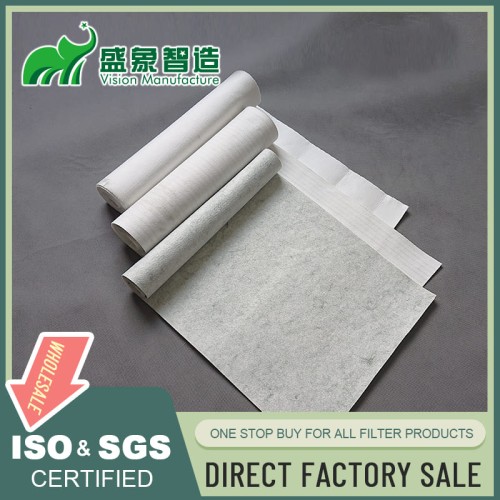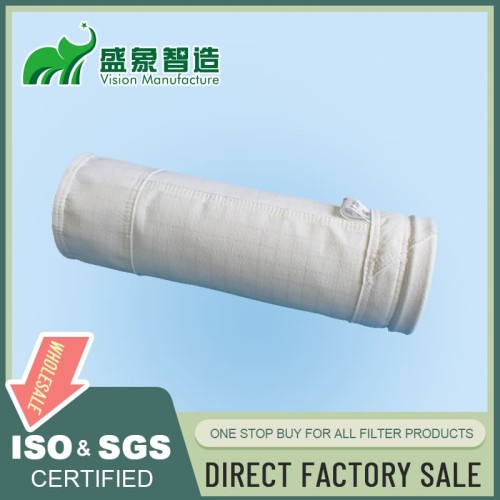
Filter Bag for Dust Collector: Enhancing Industrial Air Quality
Introduction
In the realm of industrial air quality management, the humble filter bag for a dust collector plays a crucial role. This article explores the nuances of this essential component, shedding light on its functionalities, applications, and the transformative impact it can have on maintaining a clean and healthy work environment.
Table of Contents
- Evolution of Dust Collection
- Anatomy of a Filter Bag
- Working Principle
- Importance in Industrial Settings
- Benefits of Using Filter Bags
- Installation Guide
- Maintenance Best Practices
- Applications Across Industries
- Enhancing Workplace Safety
- Economic Considerations
- Environmental Impact
- Challenges in Dust Collection
- Innovations in Filter Bag Technology
- Real-world Success Stories
- Future Trends
Evolution of Dust Collection
The journey of dust collection is intertwined with the industrial revolution. From rudimentary setups to sophisticated systems, the evolution reflects the growing awareness of the impact of airborne particles on both human health and machinery.
Anatomy of a Filter Bag
Filter bags are meticulously designed using advanced materials. This section provides insights into the construction, materials, and innovative technologies that make modern filter bags efficient and durable.
Working Principle
At its core, a filter bag functions as a barrier, trapping dust particles and preventing their release into the atmosphere. Understanding this principle is crucial for appreciating the effectiveness of these filtration bags in maintaining air quality.
Importance in Industrial Settings
Industries, ranging from manufacturing to pharmaceuticals, rely on dust collectors with filter bags to meet regulatory standards and create healthier working environments.
Benefits of Using Filter Bags
The benefits extend beyond air quality improvement. Filter bags contribute to the longevity of machinery, reduce maintenance costs, and enhance overall operational efficiency.
Installation Guide
Proper installation is paramount for the optimal performance of filter bags. This section provides a detailed guide, ensuring seamless integration into dust collection systems.
Maintenance Best Practices
Regular maintenance is key to the longevity of filter bags. Learn practical tips and best practices to ensure your system operates at its best.
Applications Across Industries
From metalworking to food processing, filter bags find applications in diverse industries. Explore the versatility of these bags and their adaptability to unique industrial settings.
Enhancing Workplace Safety
Beyond dust removal, filter bags contribute significantly to creating safer workplaces by minimizing the risk of combustible dust and improving overall safety standards.
Economic Considerations
While the initial investment in a dust collection system with filter bags may seem substantial, the long-term economic benefits, including reduced equipment wear and energy savings, outweigh the costs.
Environmental Impact
Filter bags contribute to sustainability by preventing harmful particles from being released into the environment. Learn how their usage aligns with global efforts toward eco-friendly practices.
Challenges in Dust Collection
Despite their efficacy, filter bags face challenges such as clogging and wear. This section addresses common issues and provides effective solutions.
Innovations in Filter Bag Technology
Advancements in materials and design have led to innovative filter bag technologies. Stay informed about the latest trends shaping the future of dust collection.
Real-world Success Stories
Industry success stories underscore the tangible benefits of incorporating filter bags into dust collection systems. Realize the positive impact through these firsthand experiences.
Future Trends
As technology evolves, so do dust collection methods. This section speculates on emerging trends and future developments, offering a glimpse into the next generation of filter bag technology.
Conclusion
The filter bag for a dust collector isn't just a component; it's a cornerstone in the quest for clean, safe, and efficient industrial environments. From its historical evolution to the latest innovations, this article has unraveled the multifaceted aspects of this indispensable tool.
FAQs
1. How often should filter bags be replaced?
Replacement frequency depends on factors like dust load and operating conditions but typically ranges from six months to a few years.
2. Can filter bags be recycled?
Yes, many filter bags are recyclable, contributing to sustainability efforts in waste management.
3. Do filter bags work for all types of dust?
Filter bags are designed for various dust types, but selecting the right material is crucial for optimal performance.
4. What is the impact of filter bags on energy consumption?
By maintaining clean systems, filter bags indirectly contribute to energy savings by optimizing equipment performance.
Additional Resources:
· U.S. Environmental Protection Agency (EPA)
· World Health Organization (WHO)
· Occupational Safety and Health Administration (OSHA)


